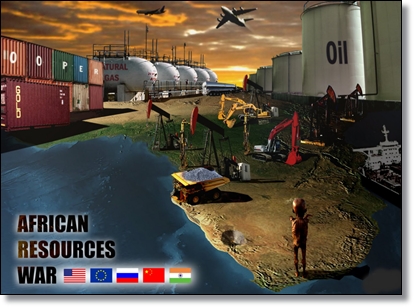Africa: Navigating the Turbulence
 |
This turbulence continued until about 1850 when the economies of Europe started to rely on industries. Yet even then, Africa was not released from the claws and shackles of the oppressors (Europeans). After abolishing slave trade, the slave masters turned to colonisation of Africa which lasted up to the second half of the 20th century.
At independence, Africans were optimistic that their plight would change for the better. This did not happen as the continent became a battleground for Capitalist Europe and socialist Russia. These superpowers fought their wars inside Africa using the African militia. That was the case in Angola and Zaire (the current DRC) just to mention a few.
Since attaining independence, most African countries are still ‘developing.’ It is quite ridiculous to have a 50 year old infant. It is strange too, to have an infant with greying hair.
Why should Africa continue to be a begging continent while everything that it needs to be self-reliant is within the continent? Africa’s human and natural resources, if well utilised and shared by the natives, would trigger the continent’s development.
African nations have always lost to developed countries on negotiations. In partnerships, the situation has been win-lose, with Africa losing. In spite of more than fifty years of foreign aid channeled to the continent, there is scarcely an thing to show for it. Tanzania, one of the great recipients of donor aid in Africa is still among the poorest countries of the world.
Donor countries in expending aid, use their own ‘consultants,’ technicians, equipment, and banks. Three quarters of the money given goes back to the sending country. They will never do anything that is out of their strategic plan. During the colonial era, the railway lines and roads were constructed to facilitate the transportation of raw materials from the interior of Africa to the coast to feed the industries in Europe. The infrastructure was also handy in bringing in imported goods from Europe to the heart of Africa.
The patronage has not stopped. ECOWAS still looks to France for support. Likewise, in EAC, SADC and COMESA, the main funder is the Queen/ King of England under the so called Commonwealth. All these organisations work in order to facilitate what is known as collective exploitation of Africa.
If donors are sincere, they ought to invest in social services. The late Mwalimu Julius Kambarage Nyerere always held that development is not physical structures. “Development should be people centred,” he observed. He said that “maunda leo” ( or physical structures such roads, airports) is different from “maendeleo” (empowering people to take charge of their destiny).
Uganda recently discovered the presence of petroleum oil, now the government is busy planning on how to transport crude oil abroad. Why can’t the oil be refined in Africa? Strange enough, the bureaucrats are planning how to make sure that the oil is sold to America, Europe and maybe China where it will be finally refined and bought back dearly. This is suicidal to Uganda, East African Community and Africa at large. South Sudan is facing the same teething problem.
It is time that Africa thought on how riches found in the continent can be used to benefit Africans first before thinking of the external consumers. The African Union ought to think on how to build capacity of Africans. There is no way that Africa will develop by either depending on the Western or Eastern market. Focus ought to be on our African market. Let us interconnect African countries rather than erecting infrastructures that facilitate the exploitation of Africa.
By Stanislaus Kigosi
E-mail: [email protected]
